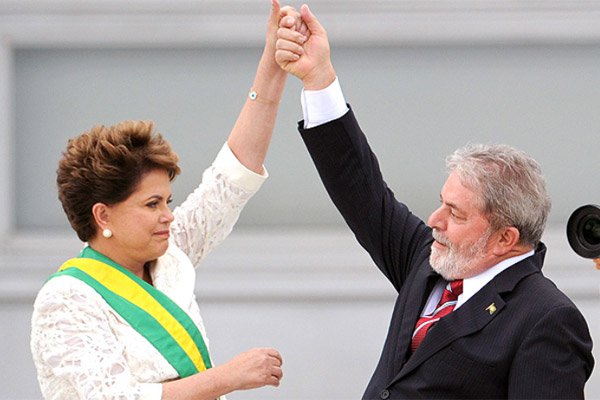Operation Lava Jato continues to unveil the deep cracks of corruption that have sickening the Brazilian political system for decades. What started out as an investigation carried out by the Federal Police of Brazil against suspected cases of money laundering from the part of executives, has now spilled over what seems to be a huge network of misconducts held by public functionaries.
However, the investigation did not attract its current levels of attention until it finally cracked down onto one of the most popular presidents of Brazilian history. Today, ex-president Lula da Silva is found under deep scrutiny for holding suspected illegal relations with the State-controlled oil company, Petrobras, as some discrepancies in the government records suggest that they engaged crimes such as money laundering and concealment of assets. As of today, the district attorney’s office estimates that the total of Lula’s misbehaviors approximately account for 10,000 million reales between 2004 and 2012 (appx in dollars).
Nevertheless, Lula does not stand by himself. Over the course of the last week, Dilma Rousseff, the current president, tried to offer his well-known friend and mentor the position of Chief of Staff with the excuse that he could be key in alleviating the profound crisis that is paralyzing the country. However, a phone conversation that was intercepted by the Federal police reveals a charismatic Rousseff speaking to an affectionate Lula, as she advised him to make use of his appointment papers “in case they are needed”. All this has painted the presidential appointment as a political strategy put forth in order to prevent Lula’s trial from falling under the jurisdiction of the right-wing Supreme Court judge, Sergio Moro, who has made clear that he will do anything in its grasp to assure Lula’s conviction. On the side, authorities doubt that the deviation of funds that occurred during Lula’s administration could not have gone unnoticed by Rousseff, as she was the Minister of Energy at the time. Such suspicions, although still in investigation, have put the Brazilian presidential figure into deep question by part of the public.
To add on, the Brazilian economy has not been doing too well in the last months, and it does not seem to recover any time soon. In February, the Brazilian government announced that the nation’s Gross Domestic Product (GDP) plunged almost 4% in the year of 2015; making it the largest fall in national production since 1996.
At the face of this political and economic crisis, millions of Brazilians over the last week have taken the streets to protest against the rooted corruption that is facing the country, as well as the for the impeachment of Dilma Rousseff. They have made very clear that they will not conform to the corruption of any public functionary, and Dilma’s suspected complicity must denote her dismissal.
Simultaneously, with a popular voice pressuring a fractured political system, deep tensions between the legislative, the executive and the judicial branches of government have drastically become more notorious.
The clash between the legislative and executive powers can be seen in the soon-to-be-held impeachment of President Rousseff. The Brazilian political system is very dynamic and it involves many actors—e.g: around 20 political parties are represented in the Chamber of Deputies, with the largest party holding less than 15% of the seats—so political balances are hard to find and maintain, as Rousseff is currently attesting. This implies that Rousseff will have to negotiate with different political parties, among them the Brazilian Democratic Movement Party (PMDB), as it is currently the party with the most seats in the lower house. However, the main leader of this party and second in command of the executive branch, Vice President Michel Temer seems to have broken up with Rousseff, as the letter that he sent to her suggests: “I know that you do not trust me and the PMDB today, and I know you won’t tomorrow. I am sorry, but this is my conviction” he expresses in it. With the PMDB’s loyalty in jeopardy, Rousseff will have to find other allies if she wants to continue holding the presidency.
The judicial power, although contending the legality of Lula’s nomination, has also featured decisions that will slow down Lula’s prosecution: Teori Zavascki, a Supreme Court judge, has requested Sergio Moro to provide him with the documents of Lula’s case. Teori Zavascki is currently investigating the Petrobras case, but this decision will give Lula some time to maneuver before he has to face these judicial proceedings. This means that, for now, Lula’s case will be with the Supreme Court, which accomplishes what he wanted to obtain with the minister legal immunity.
Today, in the midst of a dislocated government and an economic recession, Brazil continues to fragment itself under umbrellas of corrupt loyalties and political inefficiency. The outcome in the matter of Rousseff’s impeachment will definitely impact many alliances and long-lasting balances in Congress, but meanwhile, protests of all sorts and voices against the perpetrators of corruption continue to take the streets.
Featured image source: La Razón Digital/AFP/ Río de Janeiro






Be First to Comment